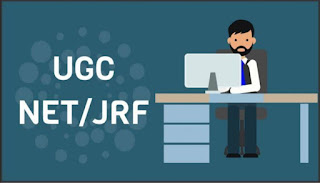HOW DOES US DOLLAR GAIN POWER
In 1944, almost exactly 75 years ago, more than 700 representatives from 44 nations traveled to the Mount Washington Hotel, a secluded resort in the mountains of Bretton Woods, N.H. With World War II coming to an end, they arrived to hammer out a new financial system for the global economy.
HISTORY OF ELEVATION IN US DOLLARLast week former U.S. Treasury secretaries, central bankers, economists and other nerds traveled to it for a conference that took stock of their legacy — the so-called "Bretton Woods" system — and debated its future. We went too.
The Mount Washington hotel is old school, with ornate chandeliers and a moose head hanging in the lobby. Classical music reminds you it's classy. There are awesome mountain views and a musty, sort of wet-carpet smell. It was grand and luxurious, but it also felt like it was straight out of The Shining.
The Dollar Takes Center Stage
Out of Bretton Woods came the World Bank, the International Monetary Fund and, most importantly, a new role for the U.S. dollar: "international reserve currency." It became the main currency the world uses to trade and save.
The United States, which then controlled most of the world's gold, pledged at Bretton Woods to fix the value of the dollar to gold at $35 an ounce. Other countries then fixed their exchange rate to the dollar, making it the central spoke of the system.
As the U.S. started racking up huge deficits and running out of its gold reserves in the 1960s, the government found it too expensive to maintain the promise. And so, in 1971, President Nixon arranged a divorce between the dollar and gold. The dollar's value is now set by a mishmash of political and economic forces, ranging from central bank decisions to the frenetic buying and selling of traders around the world. The original arrangement set at Bretton Woods is long dead, but the dollar still remains the international reserve currency.
The "Exorbitant Privilege"
This special role for the dollar has long made other countries jealous. In the 1960s, French Minister of Finance Valéry Giscard d'Estaing coined a special term for their contempt: The dollar, he said, had an "exorbitant privilege."
The United States is privileged in a few important ways under this system. Dollars and dollar-backed securities like U.S. Treasury bonds — which is how the government issues debt — are much more attractive. Many countries, for instance, save by buying U.S. debt. China holds over a trillion dollars of it!
"Now if another country really, really wants to hold your debt, that means it's very easy for you to issue debt," Greg Kaplan, an economist at the University of Chicago, told us on the South Veranda of the hotel, which has a scenic view of a mountain pass known as Crawford Notch. "Here in the U.S. we have this privilege of being able to issue debt at much lower rates than other countries," he says. This reduces the pain of deficit spending.
The United States also has the privilege of borrowing in its own currency. If the United States devalues its currency, that means it devalues its debt. There are many reasons we would not want to do this, and it's not as easy as flipping a switch, but Kaplan says theoretically we could. And though the U.S. does not abuse this position, other countries have a harder time paying their bills than we do. When Argentina, for example, borrows in dollars, it is at the mercy of whichever direction dollars are moving in. Like the federal government, American companies benefit from this system, doing transactions in dollars without having to pay the costs of converting into another currency.
The current arrangement also gives the U.S. government power over the financial system.






